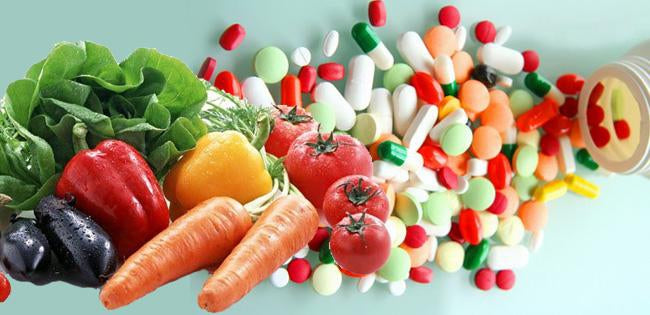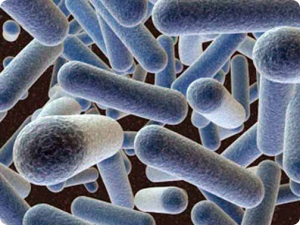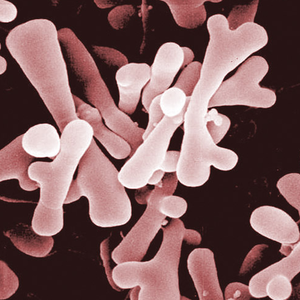3 Most Effective Weight Loss Bacteria Species & The Best Source Of Probiotics

What Are Probiotics?
It’s no secret that probioticsare good for you. The very word ‘probiotic’ literally translates as “promoting life”. In a nutshell, probiotics are healthy bacteria that provide numerous benefits to your body. Because most of the bacteria in our body lives in the gut, probiotics are usually ingested in the form of supplements, food or beverages.
Why Do We Need Bacteria?
Each of us has trillions of microorganisms in our body, with an estimated 100 trillion in our bowels alone. The interesting thing is that these microorganisms include over 500 different species, and that bacterial profiles vary from person to person. In fact, our bacterial profile is always changing depending on our diet, environment, illness and stress. These bacterial changes can have a huge impact on the functioning of the rest of our body – positive and negative.
Why Take Probiotics?

The simple answer is that probiotics are good for you! Probiotics are an effective way to restore numbers of ‘good’ bacteria that decline with age, diet and other factors. Probiotics also help establish the conditions bacteria need to grow, which helps to keep the ‘bad’ bacteria under control. An overgrowth of bad bacteria can lead to gastrointestinal illnesses, inflammation, Irritable Bowel Syndrome and other digestive disorders.
Research has shown that probiotics benefit different people in different ways. Not only that, each of the many different strains of probiotics have their own unique benefits to the body.
What Do Different Strains of Probiotics Do?
The benefits of different strains of probiotics vary widely. Although all can improve the health of the gut, certain species have unique benefits for our metabolism, immune system, digestion and even weight loss.
Gut bacteria play a key role in healthy weight management, including:
- energy production
- breaking down sugars and starches in the diet
- activating molecules involved in metabolism
- maintaining the lining of the gut
- the production of certain hormones
- controlling inflammation
It’s important to understand that the two most common strains of probiotics are Lactobacillus and Bifidobacterium. Let’s take a look at which strains do what…
Lactobacillus
Lactobacillus bacteria are the most common species of bacteria in the small intestine. They’re also the most important. Lactobacillus have the job of producing the digestive enzyme lactase, which helps us to break down the sugar in milk (lactose). Lactobacillus also play a major role in the fermentation of carbohydrates, which produces lactic acid.

We need lactic acid to prevent potentially harmful microbes growing and developing in the gut. Even more important, lactic acid helps us to absorb vital minerals calcium, copper, magnesium, and iron.
-
Lactobacillus gasseri: The Weight Loss Probiotic
The probiotic Lactobacillus gasseri is currently the most talked-about probiotic to speed up weight loss. This was first shown in a 2010 study in which a group of obese adults drank 200g of a fermented milk product containing Lactobacillus gasseri (a strain called LG2055) every day for 12 weeks. Over this period, the subjects managed to lose an average of 4.6 percent of body fat from their belly.[1] They also reduced their overall body weight. Researchers emphasized the use of lactobacillus gasseri in improving metabolism and fat-burning, particularly for those trying to reduce stubborn belly fat.
A few years later, a Korean study investigated the effect of Lactobacillus gasseri in overweight and obese adults. The researchers found that after supplementing with Lactobacillus gasseri for 12 weeks, the adults showed significant weight loss.[2] The most important factor was the reduction in waist circumference, which indicated the L. gasseri targets visceral and subcutaneous fat distribution.
Another study in 2013, conducted in Japan, showed that L. gasseri helped to reduce belly fat in healthy adults. It found that even low doses of L. gasseri (a minimum of 10(8) cfu/d) had an impressive effect on lowering abdominal adiposity.[3] However, it also suggested that the effect could only be maintained by continuing to take the probiotic.
Bifidobacterium
The Bifidobacterium species reside mainly in the walls of the colon, and work to fight off invading pathogens and yeast. Bifidobacterium also product lactic acid by fermenting carbohydrates in the diet. This lactic acid contributes to around 70 percent of the energy required by intestinal cells, helping them to protect the gut from pathogenic bacteria. Lactic acid also helps to maintain the acidity of the large intestine, which in turn prevents harmful bacteria from growing. At the same time, the low pH allows us to absorb important dietary minerals. Bifidobacterium are also responsible for producing B vitamins and vitamin K.
-
Bifidobacterium breve: The Anti-Obesity Probiotic
Bifidobacterium breve predominates in the gut of babies and children. It’s also one of the most important bacteria for overall wellbeing throughout life, particularly in digestive function.

B. breve is known to help suppress the overgrowth of Candida albicans, a type of yeast that can cause a number of health problems in the gut.
Bifidobacterium breve has also been shown to have anti-obesity effects. A 2010 study on obese mice showed that treatment w
ith B. breve helped to increase their fat metabolism and insulin sensitivity, indicating that B. breve was effective in both preventing obesity and insulin resistance.[4]
This study was replicated in humans in 2015, when researchers supplemented obese adults with B. breve probiotic capsules for 12 weeks. The probiotic was found to significantly lower their overall fat mass, with an average loss of 0.7kg.[5] Another important finding in this study was that the B. breve helped to improve blood parameters for liver function, as well as reducing inflammatory markers that contribute to disease. Researchers concluded that B. breve could be beneficial in treating obese adults with metabolic disorders.
-
Bifidobacterium lactis: The Weight-Gain Prevention Probiotic
One of the major bacterial strains in the intestines and colon, Bifidobacterium lactis is known to be beneficial in preventing weight gain.[6] When given to mice fed on a high-fat diet, the B lactis was shown to reduce weight gain as well as improve glucose intolerance and kidney function. These are all factors in metabolic syndrome. This effect was repeated in a 2014 study in which B. lactis was given to diet-induced obese mice. The B. lactis prevented the mice from gaining more weight, despite their high-fat diet. It also helped to reduce their tendency to develop glucose tolerance.[7]
B. lactis is also touted as an anti-cholesterol probiotic. Several studies have found it to significantly reduce low-density (bad) cholesterol levels and improve overall cholesterol ratios.[8]
When used in combination with L. rhamnosus, Bifidobacterium lactis can reduce abdominal fat, and overall body weight, as well as preventing weight gain. B. lactis helps to produce short chain fatty acids and reduce low grade inflammation, which are significant contributors to sluggish metabolism and weight gain.[9]
Different Sources of Probiotics
Probiotics are primarily available in the form of supplements or food. When embarking on a probiotic regime, it’s a good idea to weigh up the benefits of each form.

Probiotics from Fermented Foods
- Dairy Products: Both Lactobacillus and Bifidobacterium are present in dairy products such as yogurt, kefir, and buttermilk. Some dairy products add probiotics after the pasteurization process, which avoids the bacteria being destroyed by the heat. Some soft cheeses such as gouda, emmental and mozzarella also may contain some strains of Bifidobacterium breve, but their therapeutic value is limited.
- Fermented Vegetables: Fermented vegetables include sauerkraut, kimchi, pickles, natto, miso, tempeh.
Probiotics from Supplements
- Capsules: Most probiotic supplements are available in capsule form. They are taken with meals, usually at breakfast and/or dinner.
- Powder: Powdered probiotics are preferable for those who don’t like swallowing capsules. They may be added to cold food such as smoothies or beverages.
Why Are Probiotic Supplements Better Than Probiotic Foods?
- Convenience: For most people, taking a capsule is much easier than preparing a meal that contains fermented foods. A probiotic capsule can be swallowed with a meal.
- Assurance: A probiotic supplement will state the total content of live microorganisms on the product label. This is highly important for people who need to know they’re getting a therapeutic dose of probiotics. Food products, however, cannot provide this information. There’s no way to tell exactly how many probiotic bacteria are in a food product, or which strains are present.
- Multiple strains: Different strains of probiotics have different benefits. For example, L. gasseri has been proven to boost fat-burning and weight loss. A probiotic supplement is the best way to select the strain of bacteria suited to your needs, as the product label will state the types of strains it contains and the potency. In the case of fermented foods, however, only certain strains of probiotics are available, and only in limited amounts. There’s also no way of knowing which strains these are – or whether they’re beneficial or not.
-
Guaranteed CFU: Many brands of probiotic supplement carry a guarantee of “live” colony-forming units (CFU) in each dose. This refers to the number of bacteria that are able to ‘colonize’ the gut – that is, grow and develop. The better bacteria are able to colonize, the faster you’ll reap the benefits. A product with a high CFU count has been designed to deliver the probiotics safely to the gut where they can establish themselves.
Fermented foods are not able to provide a guaranteed CFU – or even the number of probiotic bacteria. This makes it difficult to know just what benefits you get from eating them. - Low Allergens: Many people suffer food intolerances from fermented foods, particularly dairy. In these cases, eating fermented dairy products may actually do more harm than good! Many dairy-free probiotic supplements are available and are better suited to those who cannot tolerate dairy.
- Storage: Probiotic supplements are widely available in capsule form, which makes them convenient for work or travel. Many probiotic supplements are also shelf-stable, which means they don’t require refrigeration. This is not the case with most fermented foods, which must be stored in the fridge.
- Authenticity: Probiotic supplements must meet certain guidelines (stipulated by the regulatory authority in the relevant country) in order to be sold as a health product. Food products, however, are sold as a food and not a health product. This means they don’t have to meet the same guidelines as a health product. For this reason, it’s very difficult to know if the sauerkraut or kefir you’re eating will actually provide you with any health benefits.
- Additives: Commercially-available fermented foods are known to contain large amounts of salt and preservative. Some may have been pasteurized. Salt is used to halt the fermentation process so that the food lasts longer on the shelf. Pasteurization (heat treatment) is another method of preserving food and making it ‘safe’ for consumption. Unfortunately, both of these methods can kill the beneficial bacteria in the food, reducing the benefits you’ll receive from eating them.
- Taste: Not everyone enjoys the taste of fermented foods! Sauerkraut, pickles and natural yogurt are strong-tasting foods that don’t always appeal. Worse, it may be tempting to add ‘enhancers’ to these foods to improve their taste, such as sugar in yogurt. Unfortunately, this only counters the benefits in the food.
Choosing the Best Probiotic for You

With substantial scientific research supporting the efficacy of probiotics as a weight loss aid, it’s no wonder that many people are now making probiotics part of their daily health regime.
As with any health product, it’s important to choose one that will best suit your needs. But it’s just as important to choose one that you know you will take every day!
Modern life is busy, and not everyone can afford the time and fuss required for preparing (and eating) fermented foods. And while fermented foods do supply beneficial bacteria to the gut, they aren’t always as convenient – or powerful. Probiotic supplements provide all the benefits of the bacteria you need in a neat capsule (or powdered) form, ready to be taken at your convenience. No mess, no fuss – and no aftertaste.
Using tested weight loss probiotics from recent clinical studies, we at Better Body Co. have formulated a 3-strain probiotic supplement called Provitalize. Our users have reported to lose as much as 5 pounds within a week, even without any major change in their diet or lifestyle.

